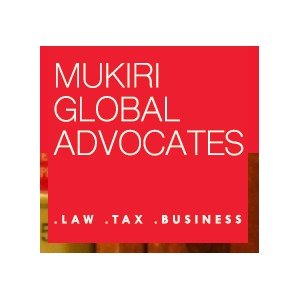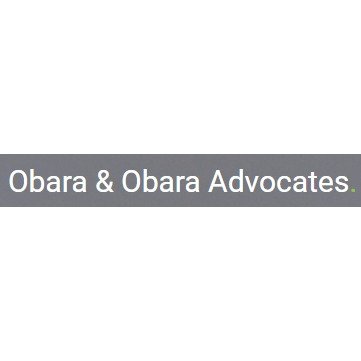Best Social Security Lawyers in Kenya
Share your needs with us, get contacted by law firms.
Free. Takes 2 min.
Or refine your search by selecting a city:
List of the best lawyers in Kenya
About Social Security Law in Kenya
Social Security in Kenya is primarily governed by a combination of statutory schemes that provide financial support to individuals in situations such as retirement, disability, or sickness. The main institution responsible for Social Security services is the National Social Security Fund (NSSF), designed as a compulsory national savings scheme to provide income replacement in the form of retirement benefits to workers in Kenya. Alongside the NSSF, there are several other programs and benefits available to individuals, such as the National Hospital Insurance Fund (NHIF) for health-related expenses.
Why You May Need a Lawyer
There are several instances where the expertise of a lawyer specializing in Social Security may be beneficial. These situations include:
- Disputes with the NSSF, such as denial or reduction of benefits.
- Complexities surrounding employment records that affect Social Security claims.
- Legal advice on eligibility and maximizing benefits.
- Navigating through appeals processes within the Social Security system.
- Assistance with the execution or resolution of Social Security fraud or misuse accusations.
Local Laws Overview
Key aspects of local laws in Kenya related to Social Security include:
- Compulsory registration with the NSSF for all employers and employees to provide retirement benefits through contributions.
- NSSF Act No. 45 of 2013, guiding the operations and management of the fund.
- Mandatory contributions to the NHIF for healthcare services access.
- Specific retirement age policies where members can access full benefits.
- Regulations that define contribution levels, benefit calculations, and disbursement processes.
Frequently Asked Questions
What is the NSSF and how does it work?
The NSSF is a statutory savings scheme where contributions from both employers and employees are pooled to provide retirement benefits. Employers deduct a specified percentage from employee salaries matched by their contributions.
Who is required to register with the NSSF?
All employers and employees, including casual and domestic workers, are required to register and contribute to the NSSF to ensure retirement benefits are covered.
Can self-employed individuals join the NSSF?
Yes, self-employed individuals can voluntarily register and contribute to the NSSF to gain access to retirement benefits.
What benefits does the NHIF provide?
NHIF provides coverage for various medical expenses, including inpatient and outpatient services, maternity, dialysis, and sometimes specialized treatments based on the contribution plan.
At what age can I start receiving NSSF benefits?
Members can start receiving retirement benefits at the age of 60, although early retirement benefits may be accessed under specific circumstances from the age of 50.
What happens if I change employers?
Your NSSF contributions and accrued benefits stay with the NSSF, and your new employer will need to continue making the necessary contributions.
How can I claim my NSSF benefits?
You can claim your benefits from the NSSF by filling out the required claim forms and submitting them to their offices, preferably with the assistance of a legal advisor to ensure a smooth process.
What if my benefits are denied or reduced?
If your claim is denied or benefits reduced, it may be beneficial to seek legal assistance to file an appeal or representation for review and resolution.
What should I do if I suspect misuse of my Social Security account?
Immediately report the suspected misuse to the NSSF and consider seeking legal advice to address potential fraud or unauthorized activities.
Are expatriates required to contribute to the NSSF?
Expatriates temporarily working in Kenya might be exempt from contributing to the NSSF, subject to international employment agreements and local laws. However, expatriates with permanent roles are generally required to contribute.
Additional Resources
For more support and information, consider these resources:
- The National Social Security Fund (NSSF)
- The National Hospital Insurance Fund (NHIF)
- Kenyan Ministry of Labour and Social Protection
- Kenyans for Kenya: a resource providing civic education
- Local legal clinics or services specializing in Social Security
Next Steps
If you need legal assistance in Social Security matters, consider the following steps:
- Identify a specialized lawyer in Social Security law.
- Gather all relevant documents and records related to your case or claim.
- Schedule a consultation to discuss your issues and potential actions.
- Evaluate advice given and decide on any further legal representation or actions required.
- Ensure continued compliance with local laws and regulations through regular updates and consultations with legal advisors.
Lawzana helps you find the best lawyers and law firms in Kenya through a curated and pre-screened list of qualified legal professionals. Our platform offers rankings and detailed profiles of attorneys and law firms, allowing you to compare based on practice areas, including Social Security, experience, and client feedback.
Each profile includes a description of the firm's areas of practice, client reviews, team members and partners, year of establishment, spoken languages, office locations, contact information, social media presence, and any published articles or resources. Most firms on our platform speak English and are experienced in both local and international legal matters.
Get a quote from top-rated law firms in Kenya — quickly, securely, and without unnecessary hassle.
Disclaimer:
The information provided on this page is for general informational purposes only and does not constitute legal advice. While we strive to ensure the accuracy and relevance of the content, legal information may change over time, and interpretations of the law can vary. You should always consult with a qualified legal professional for advice specific to your situation.
We disclaim all liability for actions taken or not taken based on the content of this page. If you believe any information is incorrect or outdated, please contact us, and we will review and update it where appropriate.
Browse social security law firms by city in Kenya
Refine your search by selecting a city.

















